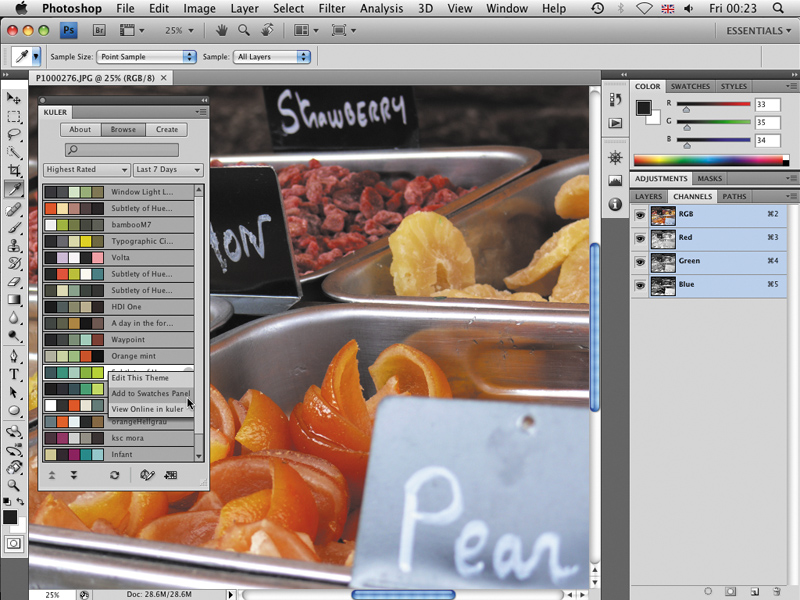Happy 20th birthday, Adobe Photoshop
This isn't just software. It's a cultural phenomenon

Photoshop has come a long way. 20 years ago today it debuted as a basic - but still pretty amazing - image editor.
It's now pretty much impossible to find an image that hasn't benefited from its magic touch.
From whitening teeth in billboard ads to foisting yet more lolcats on the world, its influence is enormous.
Inevitably that influence has been bad as well as good. In the right hands, image manipulation can be undetectable, but all too often Photoshop falls into the hands of the overworked, the shoddy and the idiotic.
That's why you end up looking at impossible furniture, terrifying teeth, really unfortunate hand placements, Viagra-powered aeroplanes and movie posters whose stars appear to have been replaced by mannequins.
It's fun to laugh at Photoshop disasters, but of course the technology can be used for evil, too. Ralph Lauren isn't the only fashion brand distorting women's bodies to sell products; it's just one of the ones whose Photoshoppers took things too far.
Magazines routinely airbrush women into impossible shapes or weird-faced freaks, while marketers get rid of black people or make them look white.
Sign up for breaking news, reviews, opinion, top tech deals, and more.
It's been used to fake images in order to damage political careers and to make political rallies appear busier.
Ruining photojournalism?
When you take all these things together, it's pretty clear that Photoshop hasn't just revolutionised photography and illustration: it's ruined photojournalism and killed our belief that the camera never lies.
Hasn't it? Perhaps not. As Hany Farid of Dartmouth College points out [PDF], "photography lost its innocence many years ago. The nearly iconic portrait of the US President Abraham Lincoln (circa 1860), for example, was a fake, and only the beginning of a long history of photographic trickery... history is riddled with photographic tampering."
As soon as images became digital, they became easier to manipulate - just as text, and music, and video have all become easier to manipulate. That's progress, not Photoshop.
In fact, there's a strong argument that Photoshop has made the world a better place. In the hands of satirists it quickly punctures politicians at their most pompous, while in the hands of the manipulators at Fark.com and B3ta.com it cracks us up laughing.
And for all we moan about unrealistic body images, surely it's better for Sarah Jessica Parker to be Photoshopped silly than to stick her unedited, Zelda-from-Terrahawks features on giant posters?
Ultimately Photoshop is just a tool - an incredibly powerful, world-changing tool, sure, but Adobe is no more responsible for the idiots who abuse it than Laslo Biro can be blamed for bad teenage poetry.

Contributor
Writer, broadcaster, musician and kitchen gadget obsessive Carrie Marshall has been writing about tech since 1998, contributing sage advice and odd opinions to all kinds of magazines and websites as well as writing more than twenty books. Her latest, a love letter to music titled Small Town Joy, is on sale now. She is the singer in spectacularly obscure Glaswegian rock band Unquiet Mind.